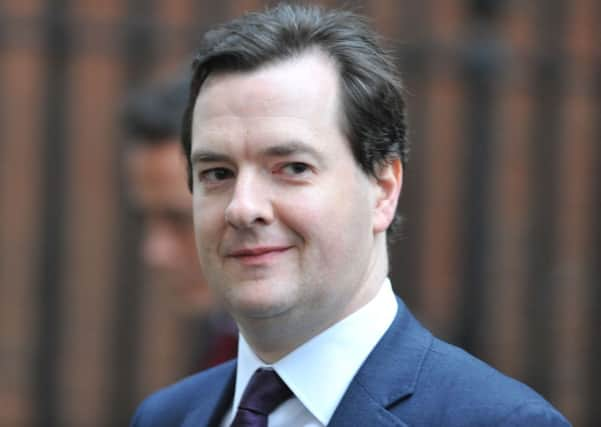Raft of positive figures see economy gaining strength


As Chancellor George Osborne prepares to announce big upgrades to Britain’s economic growth this week, a second set of data showed a flagship scheme to boost lending achieved the highest quarterly net lending since its introduction last year.
Sterling hit a five-year high against a basket of currencies as investors added to bets on the economic recovery.
Advertisement
Hide AdAdvertisement
Hide AdThe Markit/CIPS Manufacturing Purchasing Managers’ Index (PMI) jumped to 58.4 in November from an upwardly revised 56.5 in October. Index readings above 50 indicate expansion.
The index was its strongest since February 2011 and surged past the most optimistic forecasts.
“UK manufacturing continued to hit the high notes in November,” Markit economist Rob Dobson said.
New orders rose to their strongest level in more than 19 years and exports had one of their best months since the financial crisis, helped by demand from eurozone countries which are trying to dig out from the bloc’s debt crisis.
Advertisement
Hide AdAdvertisement
Hide AdThe survey also showed employment for Britain’s manufacturing sector rose to its highest since May 2011.
“It looks as if the strong recovery in the sector is translating into meaningful job creation,” Mr Dobson said.
Michael Hartig, head of manufacturing for Barclays in the North of England, added that the figures highlighted the ongoing buoyancy in the sector.
He said: “The stability of input prices, exchange rates and the growing UK economy are all positive factors for the sector giving confidence in forward order books.
Advertisement
Hide AdAdvertisement
Hide Ad“When the sector starts to perform like this, job creation is a natural bi-product. ”
Unemployment has fallen faster than the Bank of England expected, adding to doubts about how long its pledge not to raise interest rates will last.
The Bank said in August it would only consider raising rates once unemployment falls to 7 per cent. Governor Mark Carney and other top policymakers have stressed that level is not a trigger and would not compel the Bank to act.
Economists said the rise in employment in the PMI survey – to 54.5 in November from 51.9 in October – was less strong than the jump in output, supporting the Bank’s view that firms are likely to squeeze more from existing workers rather than hire new ones.